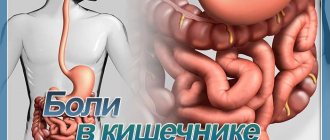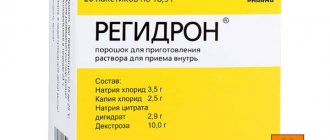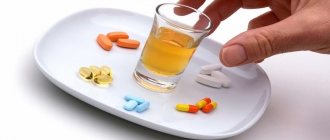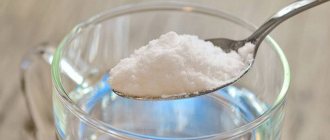Fish is one of the healthiest and most delicious types of food. It contains many vitamins and microelements necessary for humans. And there are a great many options for preparing fish: boiling, frying, smoking, salting, drying. And just eat it raw, like many peoples. Fish poisoning occurs if it has been contaminated with pathogens or other toxins and has not been properly cooked. After all, many microbes and their toxins disappear under the influence of high temperatures.
Therefore, properly prepared fish is absolutely harmless to humans. The number of fish poisonings increases in the summer and holidays.
Is it possible to get poisoned by fish?
Fish poisoning is possible when consuming poisonous fish species, as well as a product whose storage or processing conditions have been violated. In addition, fish can contain harmful parasites in their tissues or internal organs that have a parasitic effect on the human body, releasing a huge amount of life-threatening toxins that lead to poisoning.
There are several main reasons why fish poisoning is possible:
- content of harmful bacteria in fish;
- the presence of poison inside the fish;
- content of elements leading to an allergic reaction.
Poisoning from fish containing harmful bacteria
If the storage conditions of the fish do not meet accepted standards, bacteria may appear in the product, which begin to actively reproduce and produce toxins. The reasons may be a violation of the temperature regime, repeated freezing or improper heat treatment. When eating such fish, an intestinal infection occurs.
Bacteria that cause poisoning can be, for example, staphylococcus or salmonella.
Poisoning by poisonous fish
As a rule, poisonous fish live in tropical waters and are an exotic product. Their tissues contain particularly dangerous toxins, some of which are not destroyed even if the correct heat treatment has been carried out. These poisons cause irreversible harm. Among these fish, the most famous fish in the world is the Fugu fish.
It should be noted that poisoning is also possible when eating non-poisonous fish, due to the fact that fish are very good at accumulating poisons that enter their bodies from sea water. In this case, the habitat of the fish has a huge impact.
Poisoning leading to allergies
There are a small number of fish that contain histidine, an element that can, under some circumstances, turn into saurin, which causes a strong allergic reaction in the body. In this case, redness of the skin, itching and disorders of the body's digestive system occur. The most famous such fish include tuna and mackerel.
Poisoning by parasites
In addition to the above reasons, it should be noted that the tissues and organs of some types of fish may contain parasites that enter the human body and produce harmful toxins there. In this case, the reason for their content in fish is also improper heat treatment. It should be noted that in the world there have often been situations where worms were found in the liver, brain and some other organs.
Prevention
Fish is a tasty and healthy product; it is not necessary to refuse it for fear of poisoning, but you should carefully follow the rules:
- buy fish and products made from it in large stores that can guarantee compliance with storage rules;
- After defrosting the fish, cook it immediately; storage and re-freezing are unacceptable;
- do not store fish next to raw meat or chicken;
- do not eat exotic varieties of fish, especially in dubious places;
- Do not buy fish and fish dishes from street vendors.
Video from YouTube on the topic of the article:
Food poisoning can occur after eating a variety of foods, from fruits and vegetables to canned goods, drinks and ready-made meals. At the same time, one of the most dangerous food poisonings for humans is poisoning from fish and seafood.
Symptoms of fish poisoning
The set of symptoms of poisoning is quite diverse, and largely depends on what kind of fish was consumed that led to the poisoning.
In this case, three groups of poisoning are distinguished:
- cholera-like fish;
- paralytic fish;
- fish of the pufferfish family.
Cholera-like fish types
Poisoning by cholera-like types occurs mainly due to the fact that a huge amount of harmful bacteria that produce toxic toxins has accumulated in the tissues of the fish.
Symptoms of such poisoning include the appearance of sharp pain in the abdomen, diarrhea, nausea, vomiting, spasms and cramps in the muscles, as well as a persistent feeling of thirst.
Paralytic fish species
When eating spoiled fish, even if it has been properly heat-treated, a condition may occur that causes paralytic poisoning.
Symptoms of this condition include:
- nausea and vomiting;
- presence of strong thirst;
- sudden dehydration;
- diarrhea.
Pufferfish family of fish
As already mentioned, Fugu fish is a very famous fish. Poisoning is associated with eating some of the organs of this fish, causing sudden numbness first in the upper body, which then rapidly spreads throughout the human body. Nausea begins, which immediately turns into vomiting.
Such poisoning in most cases leads to death, due to the fact that even timely medical assistance is not always able to save a person.
Diseases that cause this odor
When vaginal secretions acquire a foul smell of herring, this is an alarming signal for the female body. This symptom is often accompanied by signs of inflammation, which indicates the presence of serious problems with the health of the reproductive system. But not in all cases, the unpleasant odor of vaginal discharge is considered a consequence of the inflammatory process, since in some cases this phenomenon is the result of a disruption of metabolic processes or an increase in the performance of the glandular epithelium.
Vaginal secretions can change their aroma or consistency under the influence of the following negative factors:
The cause of a fetid fishy odor in a woman is often caused by various diseases of the reproductive system. In order to more accurately establish the nature of this phenomenon, representatives of the fairer sex should visit a qualified gynecologist and undergo all laboratory tests prescribed by him.
An unpleasant smell of fish from an intimate place can appear in a woman for another reason. Predisposing factors in such a situation are:
- promiscuity;
- improper or too frequent vaginal douching;
- failure to comply with hygiene standards;
- sexually transmitted diseases transmitted to the weaker sex through unprotected sexual contact.
Treatment for fish poisoning
In order for the treatment to be useful and bring results, it is very important to correctly identify the causes of poisoning.
When the first signs of poisoning associated with eating fish appear, it is necessary to carry out first aid procedures before carrying out the main treatment:
- First of all, you need to cleanse your stomach.
- Due to the fact that with the removal of toxins, dehydration of the body occurs at the same time, it is necessary to replenish the lack of water in the body.
- Cleanse your colon naturally.
Vomiting, which is caused by poisoning, is a natural reaction of the body aimed at emptying the stomach of contents. But usually this is not enough to completely cleanse the stomach of all harmful substances in it. In this case, it is necessary to enhance the effect by drinking a large amount of water with the addition of salt or a small amount of soda until the vomit that comes out consists exclusively of water.
It is very important not to induce vomiting yourself if the body has not done so itself, since in this case the spoiled product is no longer in the stomach.
In order to replenish the amount of water in the body, it is recommended to drink a glass of liquid immediately after bouts of vomiting or diarrhea.
In no case should you take antidiarrheal drugs on your own, without a doctor’s prescription, as this will stop the removal of toxins and will lead to stagnation in the intestines, as a result of which its walls will immediately begin to absorb toxins. In addition, the process of decay will begin, which also has a huge impact on the condition of the body.
There are a number of conditions under which a patient requires inpatient treatment. Among them are:
- the presence of blood in the stool during diarrhea;
- prolonged increase in body temperature;
- continuous bouts of vomiting;
- feeling of increasing weakness;
- diarrhea occurs at least 10 times a day.
Taking medications for poisoning
The doctor's prescription of medications for the treatment of fish poisoning in each specific case is individual, but there is a general treatment scheme for patients who are admitted with signs of poisoning:
- carrying out rehydration therapy;
- taking enterosorbents;
- if there is severe pain, prescribe painkillers.
After carrying out basic measures aimed at normalizing the patient’s general condition, it is necessary to pay attention to restoring the intestinal microflora.
When is it necessary to see a doctor?
Calling an ambulance is mandatory if, during first aid measures for fish poisoning, the victim’s temperature rises to 39 degrees or higher.
In cases where initially a person felt mild signs of poisoning, washed his stomach, took sorbents, but over time he only gets worse, weakness, chills, dizziness, clouding of consciousness appear, it is necessary to urgently consult a doctor.
In addition, you must call an ambulance if:
- elderly people and children were poisoned;
- poisoning is caused by poisonous fish species;
- there are increasing symptoms of dehydration;
- The victim shows signs of damage to the nervous system.
At home, it is impossible to fully cleanse the body of the poisons that have entered it, and compensate for the harm that intoxication has caused it. In a medical institution, doctors with a whole arsenal of medicines and manipulations enter the fight for the life and health of the victim.
Glucose solutions, vitamins, and saline solutions are administered intravenously.
Traditional methods of treating poisoning
If the disease is mild, then the use of folk remedies is allowed, but only after consultation with a specialist.
Taking cinnamon infusion
Cinnamon is an excellent natural antispasmodic and sorbent. To prepare a medicinal infusion, you need to add half a spoon of cinnamon to a glass of boiling water, then leave the resulting mixture for a quarter of an hour and strain. It should be taken in small sips; the temperature of the infusion should not be too high.
Taking an infusion with marshmallow
Marshmallow has a tonic effect on the body after poisoning and helps speed up recovery. Marshmallow roots are crushed, then half a teaspoon is added to 150 ml of boiled water and left for 30 minutes. Take 4 times a day, one tablespoon. If only leaves and flowers are available, then you need to add about two tablespoons to 400 ml of boiling water and leave to steep for at least 4 hours. In this case, the infusion is taken at least 3 times a day.
Taking dill decoction
To prepare this remedy, you will need one spoon of dill seeds and 300 ml of boiling water. The duration of infusion is 5 minutes, after which you need to boil the infusion for 2 minutes, strain and add honey.
This remedy will help relieve attacks of vomiting, retain potassium in the body and quickly remove toxins from it.
First aid
Before doctors arrive, it is necessary to carry out manipulations to alleviate the course of the pathology and reduce the risk of complications. The procedure is as follows:
- Gastric lavage. Dissolve a spoonful of soda in a liter of warm boiled water, give it to the patient to drink and induce a gag reflex by pressing your fingers on the root of the tongue.
- Use of sorbents. After a few minutes, the patient should drink a drug with an absorbent effect: activated carbon, Polysorb, Enterosgel. Use the product according to the instructions for use.
- Fight dehydration. Before doctors arrive, it is necessary to drink large amounts of lightly salted still water or special medications in order to restore water and electrolyte balance. Regidron is well suited for this.
It is prohibited to independently administer antispasmodics, laxatives, diuretics and other groups of drugs.
Nutrition during recovery
It is very important after the main treatment to adhere to a certain diet so that nutrition has the least impact on digestion. After poisoning, it is necessary to exclude fatty and spicy foods, dairy products, and alcohol for some time.
Meals should be small, and you should not burden your digestive system. All products must be prepared in dietary form. In addition, you need to drink more green tea or various decoctions to help restore the body.
What you need to know to avoid fish poisoning
In order to avoid fish poisoning, you need to follow a number of simple rules:
- When storing fish, it is necessary to observe the time regime and monitor its expiration date;
- avoid repeated defrosting;
- carry out heat treatment with special care;
- do not consume ready-made fish dishes whose shelf life exceeds 3 days;
- When buying fish, pay attention to appearance.
Fish is a very critical product, and when eating it, it is very important to follow all storage and preparation rules. The serious consequences that can be caused by fish poisoning pose a huge danger to the human body, and it is very important to be able to prevent their development by providing timely medical care.
Main reasons
The main etiological factor is a pathogenic bacterium and its metabolic products. Events contributing to the development of the disease are as follows:
- violations of transportation and storage rules in a store or at home;
- insufficient temperature treatment;
- fishing in unsuitable water bodies;
- preparing food without taking into account sanitary requirements; employees ignoring personal hygiene rules;
- joint storage of fish and other raw products: meat, poultry.
The problem of food intoxication is dealt with by a specialized body, Rospotrebnadzor, whose representatives state that the main cause of outbreaks of poisoning is human negligence in production and in grocery stores.











